Search the Special Collections and Archives Portal
Search Results
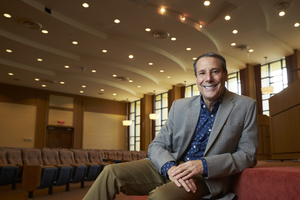
Photograph of Architect Jon Sparer, Henderson (Nev.), December 01, 2016
Date
Archival Collection
Description
Longtime Las Vegas architect Jon Sparer poses in the Sanctuary at Congregation Ner Tamid in Henderson. Sparer designed Ner Tamid's current location on the Greenspun Campus for Jewish Life, Learning, and Spiritual Renewal at 55 N. Valle Verde Drive.
Image
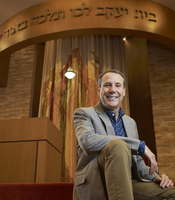
Photograph of Architect Jon Sparer, Henderson (Nev.), December 01, 2016
Date
Archival Collection
Description
Longtime Las Vegas architect Jon Sparer poses in the Sanctuary at Congregation Ner Tamid in Henderson. Sparer designed Ner Tamid's current location on the Greenspun Campus for Jewish Life, Learning, and Spiritual Renewal at 55 N. Valle Verde Drive.
Image
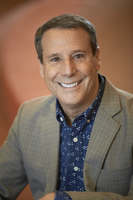
Photograph of Architect Jon Sparer, Henderson (Nev.), December 01, 2016
Date
Archival Collection
Description
Longtime Las Vegas architect Jon Sparer poses in the Sanctuary at Congregation Ner Tamid in Henderson. Sparer designed Ner Tamid's current location on the Greenspun Campus for Jewish Life, Learning, and Spiritual Renewal at 55 N. Valle Verde Drive.
Image

Photograph of Dorothy Eisenberg reads to fourth-graders, Las Vegas (Nev.), December 08, 2016
Date
Archival Collection
Description
Longtime Las Vegas resident Dorothy Eisenberg reads to fourth-grade students attending the school bearing her name. Eisenberg frequently participates in school activities saying, "It keeps me young."
Image

Photograph of Dorothy Eisenberg reads to fourth-graders, Las Vegas (Nev.), December 08, 2016
Date
Archival Collection
Description
Longtime Las Vegas resident Dorothy Eisenberg reads to fourth-grade students attending the school bearing her name. Eisenberg frequently participates in school activities saying, "It keeps me young."
Image

Photograph of Dorothy Eisenberg with fourth-graders, Las Vegas (Nev.), December 08, 2016
Date
Archival Collection
Description
Longtime Las Vegas resident Dorothy Eisenberg poses with fourth-grade students attending the school bearing her name. Eisenberg frequently participates in school activities saying, "It keeps me young."
Image
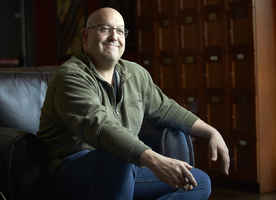
Photograph of Harry Fagel, Henderson (Nev.), January 13, 2017
Date
Archival Collection
Description
Harry Fagel grew up in the Las Vegas Jewish community and works as a Lieutenant with the Las Vegas Metropolitan Police Department. Harry is also a published poet with two books of poetry. Seen here at a favorite establishment, En Fuego Cigar Lounge at 790 Coronado Center Drive in Henderson.
Image
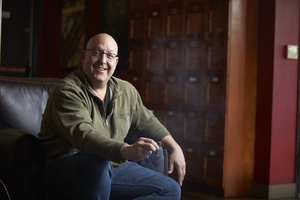
Photograph of Harry Fagel, Henderson (Nev.), January 13, 2017
Date
Archival Collection
Description
Harry Fagel grew up in the Las Vegas Jewish community and works as a Lieutenant with the Las Vegas Metropolitan Police Department. Harry is also a published poet with two books of poetry. Seen here at a favorite establishment, En Fuego Cigar Lounge at 790 Coronado Center Drive in Henderson.
Image
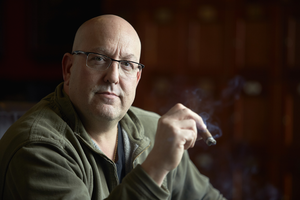
Photograph of Harry Fagel, Henderson (Nev.), January 13, 2017
Date
Archival Collection
Description
Harry Fagel grew up in the Las Vegas Jewish community and works as a Lieutenant with the Las Vegas Metropolitan Police Department. Harry is also a published poet with two books of poetry. Seen here at a favorite establishment, En Fuego Cigar Lounge at 790 Coronado Center Drive in Henderson.
Image
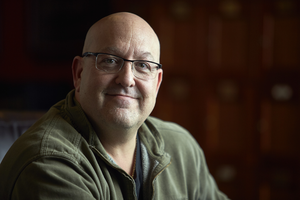
Photograph of Harry Fagel, Henderson (Nev.), January 13, 2017
Date
Archival Collection
Description
Harry Fagel grew up in the Las Vegas Jewish community and works as a Lieutenant with the Las Vegas Metropolitan Police Department. Harry is also a published poet with two books of poetry. Seen here at a favorite establishment, En Fuego Cigar Lounge at 790 Coronado Center Drive in Henderson.
Image
